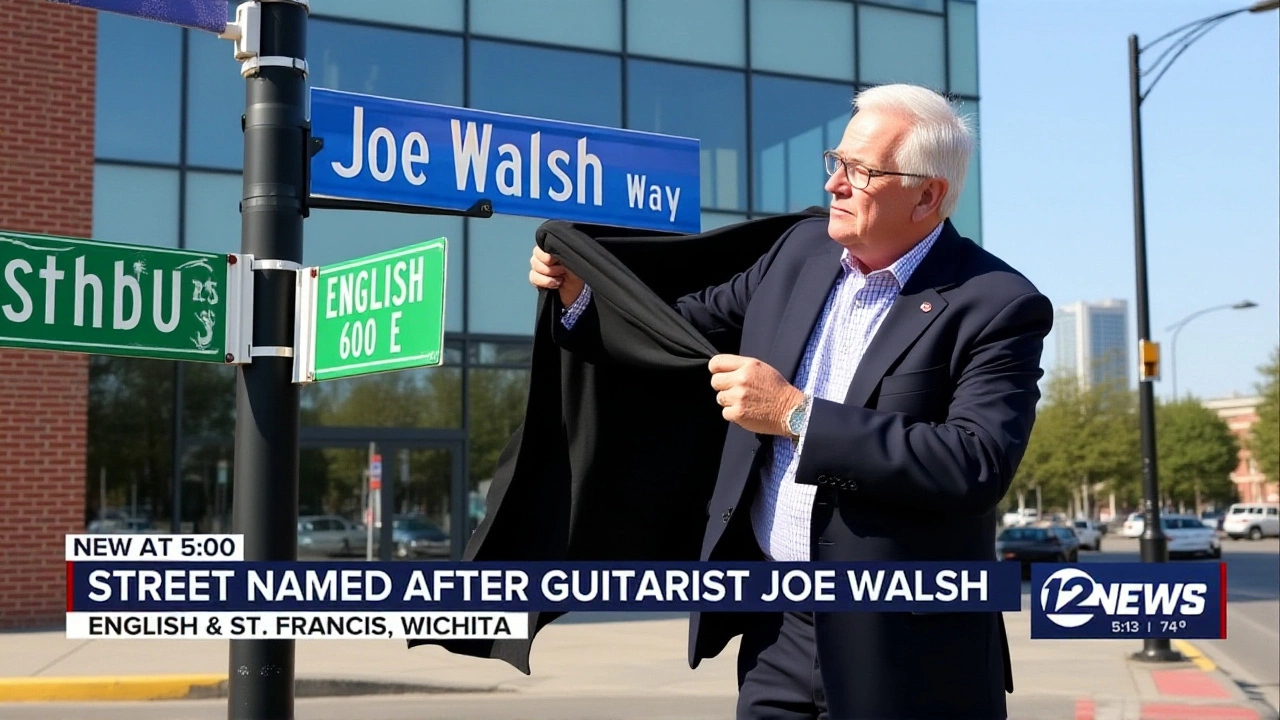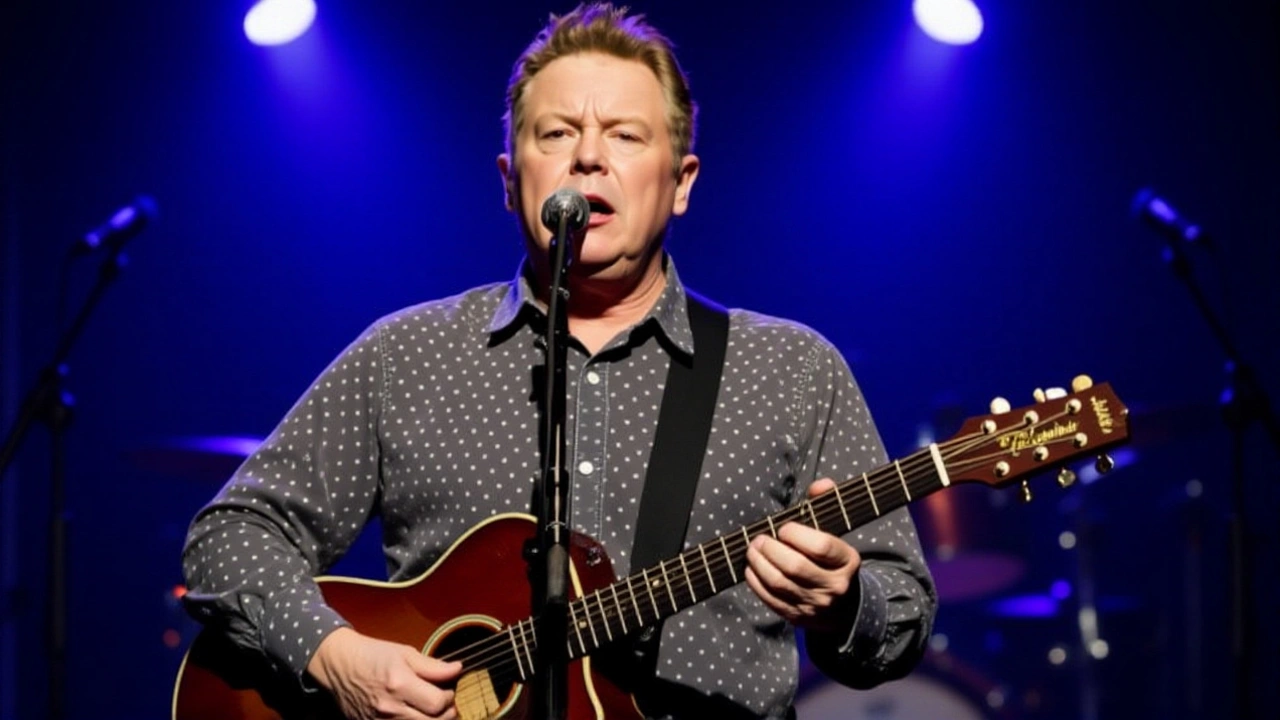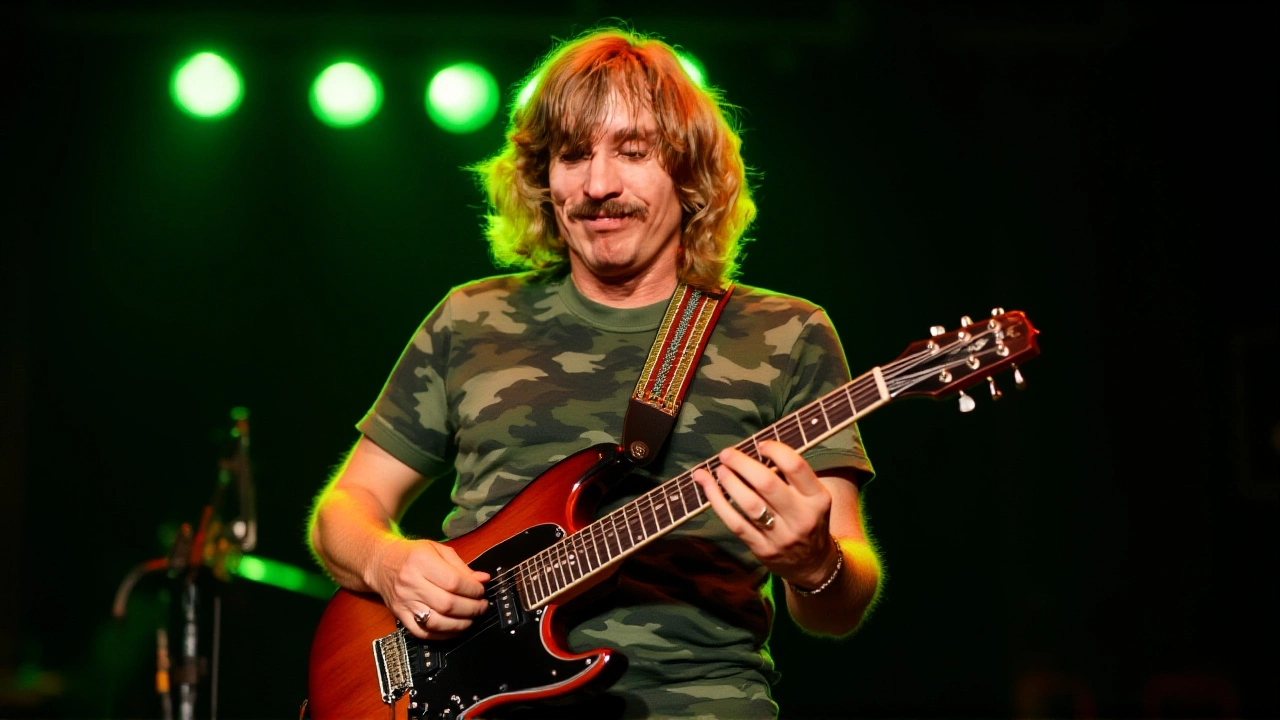When Joe Walsh stepped onto the stage at the Troubadour in West Hollywood in 1975, no one could’ve guessed he’d one day return not just as a rock legend, but as a beacon of recovery. The Joe Walsh who played with the Eagles during their peak was a force of nature — wild, brilliant, and increasingly self-destructive. But after decades of alcohol and cocaine addiction that nearly erased his career, he’s now celebrating 31 years sober, a milestone few in rock ever reach — and fewer still talk about with this kind of raw honesty.
The Breaking Point: When Rock and Roll Almost Killed Him
It wasn’t one night. It was years. Walsh, born November 20, 1947, in Wichita, Kansas, first turned to alcohol to quiet his stage fright. By the time the Eagles broke up in 1980, he was deep in a spiral. "My higher power became vodka and cocaine," he told Billboard in 2018. "I burned all the bridges. Nobody wanted to work with me. I was angry. … I turned into this godless, hateful thing." Those weren’t just lyrics. That was his life. Friends stopped calling. Studios turned him away. His daughter, Lucy Walsh, whom he had with a different mother, grew up largely without him. "For a long time my alcoholism and use of drugs was manageable," he later told Rolling Stone. "But the last two or three years… were terrifying."The Turning Point: Why He Chose Sobriety in 1993
The catalyst wasn’t a rock-bottom moment — it was a reunion. When the Eagles announced plans to reunite in the early 1990s, Walsh realized he couldn’t show up as the man he’d become. "I didn’t want to be the guy who ruined it," he said in a 2023 interview with Far Out Magazine. He entered recovery in 1993, after decades of denial. He credits Alcoholics Anonymous and the 12-step program for saving him. "I once thought I wouldn’t survive," he said. "But music saved me." The irony? The very thing he’d blamed for his addiction — the pressure of performance — became his lifeline. He began writing again. Quietly. Honestly. And in 2012, he released "One Day At A Time," a tender, unflinching ballad that didn’t glorify his past — it mourned it.
A New Purpose: VetsAid and the Power of Giving Back
Sobriety didn’t just heal Walsh — it redirected him. In 2017, he founded VetsAid, a nonprofit dedicated to supporting veterans returning from Iraq and Afghanistan. "We’ve only just begun to appreciate the long-term impacts on our troops," he wrote on his website. "Rock and roll seems to be what I do best. It’s also the least I could do." Since then, VetsAid has raised over $2.3 million, funding mental health services, housing programs, and job training for veterans across 42 states. This Saturday, November 15, 2024, Walsh will host his 9th annual VetsAid concertWichita, Kansas at the Intrust Bank Arena, featuring Vince Gill, Susan Tedeschi, Derek Trucks, Nathaniel Rateliff, and Ryan Bingham. The show will stream live via Veeps.A Final Act: The Auction That Honors a Life Reclaimed
On December 16-17, 2024, Julien’s Auctions will sell over 800 items from Walsh’s personal collection at the Troubadour — his 1959 Fender Telecaster, custom stage jackets, vintage ham radios, even his first car. All proceeds benefit VetsAid. It’s not a farewell. It’s a full-circle moment. The man who once lost everything is now giving it all away — not to fans, but to those who served.
Reconciliation: The Daughter He Almost Lost
Perhaps the most profound healing has been personal. In 2024, Lucy Walsh published her memoir, Remember Me as Human, detailing her childhood without him — and the slow, painful rebuilding of their bond after his sobriety. "He didn’t just stop drinking," she wrote. "He learned how to be present. And that was the hardest part." Walsh rarely speaks about the book publicly. But those close to him say he carries it with him — a reminder that recovery isn’t just about quitting substances. It’s about becoming someone worth knowing again.Frequently Asked Questions
How did Joe Walsh’s addiction affect his relationship with the Eagles?
Walsh’s addiction strained his ties with the band during the 1980s, especially after their 1980 breakup. He was largely absent from group activities and nearly missed the 1994 reunion because of his substance use. His sobriety in 1993 made his return possible, and he’s since become a consistent member of the touring lineup — a testament to how recovery restored not just his health, but his place in rock history.
What role did music play in Joe Walsh’s recovery?
Music was both the trigger and the cure. Walsh initially used alcohol to manage performance anxiety, but after getting sober, songwriting became his therapy. Tracks like "One Day At A Time" allowed him to process guilt and grief. Performing again — clean and present — gave him a renewed sense of purpose, proving his talent didn’t need chemicals to survive.
Why is the VetsAid auction significant beyond fundraising?
The auction isn’t just about selling memorabilia — it’s a symbolic act of release. Walsh is letting go of the physical remnants of his past life, redirecting their value toward veterans. Each guitar, each shirt, carries a story of excess — now repurposed into healing. It turns personal history into public good, aligning his legacy with service rather than spectacle.
How has Joe Walsh’s story influenced other musicians?
Walsh has become a quiet mentor in recovery circles. Several artists, including members of the Black Crowes and members of the Foo Fighters, have credited his openness with helping them seek help. Unlike many rock stars who hide their struggles, Walsh speaks at AA meetings and encourages younger musicians to get support early — making him an unlikely but powerful voice in addiction advocacy.
Is Joe Walsh still performing and recording?
Yes. At 77, Walsh continues to tour with the Eagles and performs solo shows regularly. He released a new solo album, Analog Man, in 2012 and has been working on new material since 2023. His performances now carry a quiet intensity — less about volume, more about presence. He’s not trying to prove anything anymore. He’s just grateful to be there.
What happened to Joe Walsh’s daughter Lucy after his sobriety?
Lucy Walsh, a musician and author, spent years estranged from her father due to his addiction. After he got sober, they slowly rebuilt their relationship. Her 2024 memoir, Remember Me as Human, chronicles their journey from distance to reconciliation. She now performs with him at select VetsAid events, calling their shared music a "healing duet." Their bond is one of the most powerful outcomes of his recovery.
